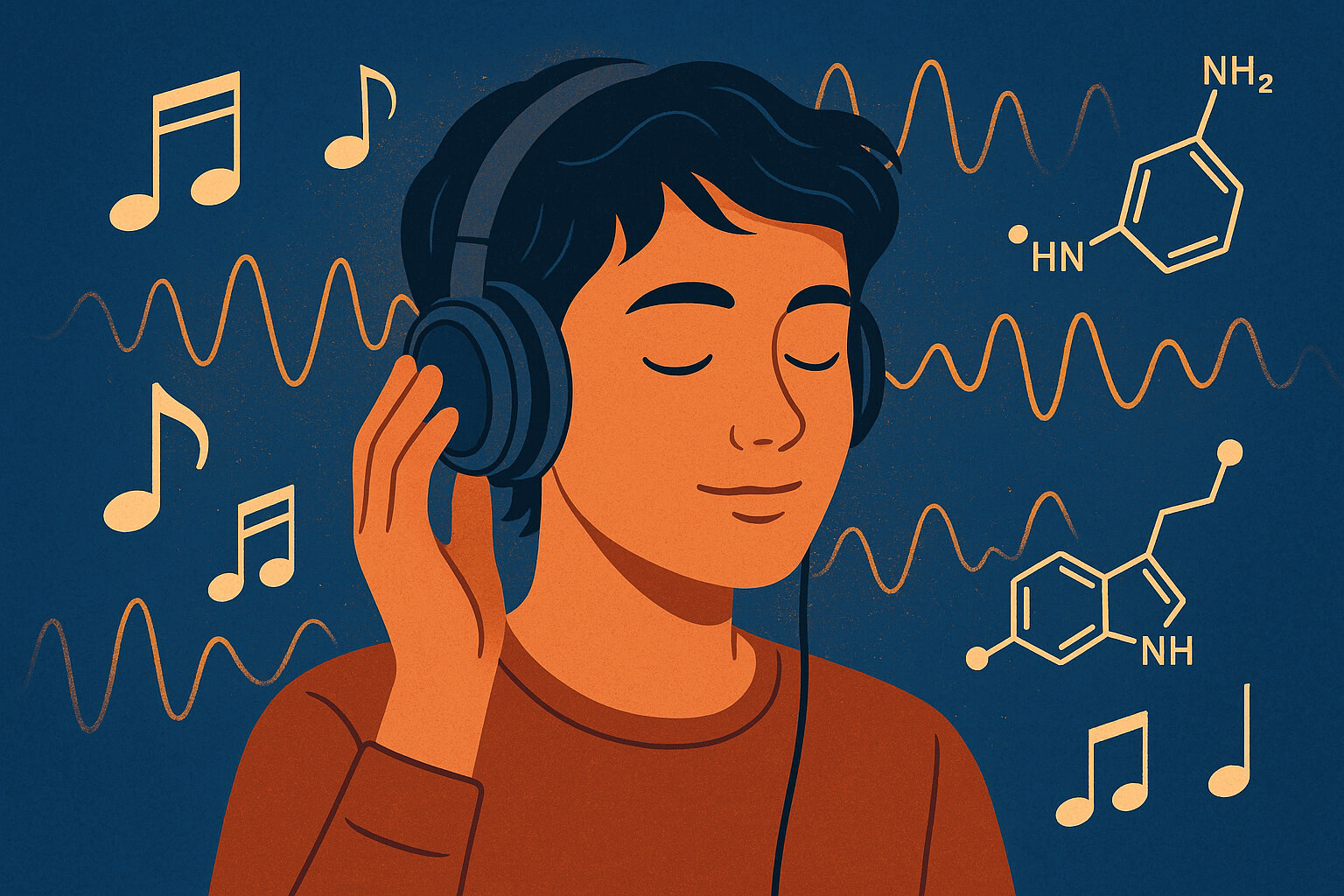August 05, 2025

Ever noticed how the right song can instantly flip your mood? One minute you’re stressed or sluggish, and the next you’re smiling, tapping your feet, or even feeling chills. That’s not just emotion—it’s neuroscience in action.
Music doesn’t just sound good—it triggers profound chemical, emotional, and physical reactions in your brain and body.
Here’s a deeper look at why music makes you feel good—and how it influences your mind, mood, and body on a scientific level.
At the heart of your response to music is dopamine, the brain’s "pleasure" neurotransmitter. Listening to a favorite song causes a dopamine release, lighting up the same brain areas involved in rewards like food, love, and even winning a game.
A 2011 study published in Nature Neuroscience showed that when people listened to music that gave them chills, their brains released a surge of dopamine—especially during emotionally intense moments like a build-up or beat drop.
🎧 The result? Music creates a natural high similar to the joy of achieving something meaningful.
Different types of music can influence your brain’s electrical rhythms, known as brainwaves. This synchronization can affect your mental state—from deep focus to total relaxation.
🎧 The result? Music literally tunes your mind—changing how you feel and think in real-time.
Have you ever heard a song and instantly been transported back to a memory? That’s because music activates the hippocampus and amygdala—brain regions tied to memory and emotion.
Music linked to personal experiences lights up more of the brain than neutral tunes. This is why "your song" with someone feels emotionally loaded, or why a childhood lullaby can still bring comfort.
The result? Music becomes a personal emotional time machine—retrieving feelings long stored away.
Humans have evolved to use rhythm and song for bonding—from tribal drums to stadium anthems. Music is social glue. When we sing or dance with others, we feel more connected and synchronized.
🎧 The result? Music isn’t just a solo experience—it strengthens your emotional ties to others.
Feeling tense? Music can literally lower your stress hormones. Slow, gentle tunes—especially instrumental or ambient—help reduce cortisol, easing anxiety and tension.
One study from the Journal of Music Therapy found that listening to relaxing music before a stressful event significantly reduced anxiety markers and blood pressure.
🎧 The result? Music is nature’s therapy—an emotional reset button during stressful moments.
Your body responds to rhythm. When you listen to a slow song, your heart rate and breathing may slow down to match. A fast beat can energize you, even boost endurance during workouts.
🎧 The result? Music changes your physiology—boosting energy or calming your nerves depending on what you need.
Unlike most activities, music engages nearly every region of the brain at the same time: auditory cortex, motor cortex, limbic system, prefrontal cortex, and more.
Functional MRI scans show that when someone listens to music, the brain lights up like a city at night—far more than during a regular task like reading or doing math.
🎧 The result? Music is a full-brain workout that fuels emotion, memory, imagination, and movement simultaneously.
From dopamine rushes to heartbeats in sync, music is deeply embedded in our biology. It shapes how we feel, how we remember, how we connect with others—and even how we heal.
Whether you’re using it to boost your mood, focus on work, or process emotions, know this: your love for music isn’t random—it’s rooted in your nervous system.
So the next time your favorite song gives you chills, smile. That’s your brain doing what it’s evolved to do: feel joy through sound.
Stay up to date with the latest tips, expert insights, product reviews, and step-by-step guides to help you grow, create, and succeed—no matter your industry or passion.